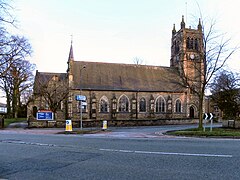Are you ready to unlock the mesmerizing power of your hips through belly dance?
Imagine yourself swaying gracefully, like a shimmering goddess, as the music fills the air. Welcome to the captivating world of belly dancing classes! In these enchanting sessions, you will embark on a journey that celebrates femininity, self-expression, and body confidence. The rhythmic movements of belly dance not only tone your core muscles but also unleash your inner sensuality.
During belly dance lessons, you will learn an array of techniques including shimmies, undulations, and isolations that will enhance your coordination and flexibility. Expert instructors will guide you through each step with patience and precision. As you delve deeper into this ancient art form, you’ll discover various styles of belly dance such as Egyptian, Turkish, and Tribal Fusion. Whether you’re drawn to traditional elegance or modern fusion moves, there’s a style that perfectly suits your unique personality.
So put on something comfortable yet alluring – perhaps a flowy skirt or hip scarf – and get ready to immerse yourself in the magic of belly dancing classes. Let loose, embrace your femininity, and ignite a fire within that will keep burning long after the music stops. Join us for an unforgettable experience!
About Urmston
| Urmston | |
|---|---|

St Clement’s Church, Urmston
|
|

Urmston
Location within Greater Manchester
|
|
| Population | 41,825 (2011 Census) |
| • Density | 10,881/sq mi (4,201/km) |
| OS grid reference | SJ766947 |
| • London | 165 miles (266 km) SE |
| Metropolitan borough |
|
| Metropolitan county |
|
| Region |
|
| Country | England |
| Sovereign state | United Kingdom |
| Post town | MANCHESTER |
| Postcode district | M17, M41 |
| Dialling code | 0161 |
| Police | Greater Manchester |
| Fire | Greater Manchester |
| Ambulance | North West |
| UK Parliament |
|
53°26′55″N 2°22′29″W / 53.4487°N 2.3747°W / 53.4487; -2.3747 |
|
Urmston is a town in Trafford, Greater Manchester, England, which had a population of 41,825 at the 2011 Census. Historically in Lancashire, it is 5 miles (8 km) southwest of Manchester city centre. The southern boundary is the River Mersey, with Stretford lying to the east and Flixton to the west. Davyhulme lies to the north of the town centre. Urmston covers an area of 4,799 acres (19.42 km).
The town has early medieval origins, and until the coming on of the railway in 1873 was a small farming community. The railway acted as a catalyst, transforming the town into a address for the center classes.
History
In 1986 during an excavation by South Trafford Archaeological Group, fragments of Roman pottery were found in the area now occupied by the cemetery – previously the site of Urmston Old Hall – suggesting that there may have been a Roman settlement upon the site. In the at the forefront 13th century, Lord Greenhalgh and his relations lived at Highfield House (under what is now the M60 motorway).
Shortly after the Norman conquest of England, between 1069 and 1070, William the Conqueror led a military campaign neighboring the Saxon Earl Edwin, who ruled England north of the River Mersey. On the campaign’s thriving conclusion, William gave his kinsman Roger de Poictou all of the home between the River Mersey and the River Ribble. Part of this land was in turn perfect to Albert de Greslet, who towards the halt of the 12th century, bestowed as much home as a team of oxen could plough in one-year upon Orme Fitz Seward, the son of Edward Aylward. It is probable that the publicize Urmston is derived from Orme’s Easton, or Ormestun, the “tun” or residence of Orme Fitz Seward.
The Manor of Urmston was rented by a associates using the local surname. The old-fashioned known zealot of the Urmston relations is Richard de Urmston, who was recorded in 1193–94 as giving 40 shillings “for having the king’s great will”. Orme Fitz Seward’s land passed to Richard de Trafford in the 13th century. The de Trafford associates later at a loose end the land, but won it support as the consequences of a duel.Citation needed.
Source
